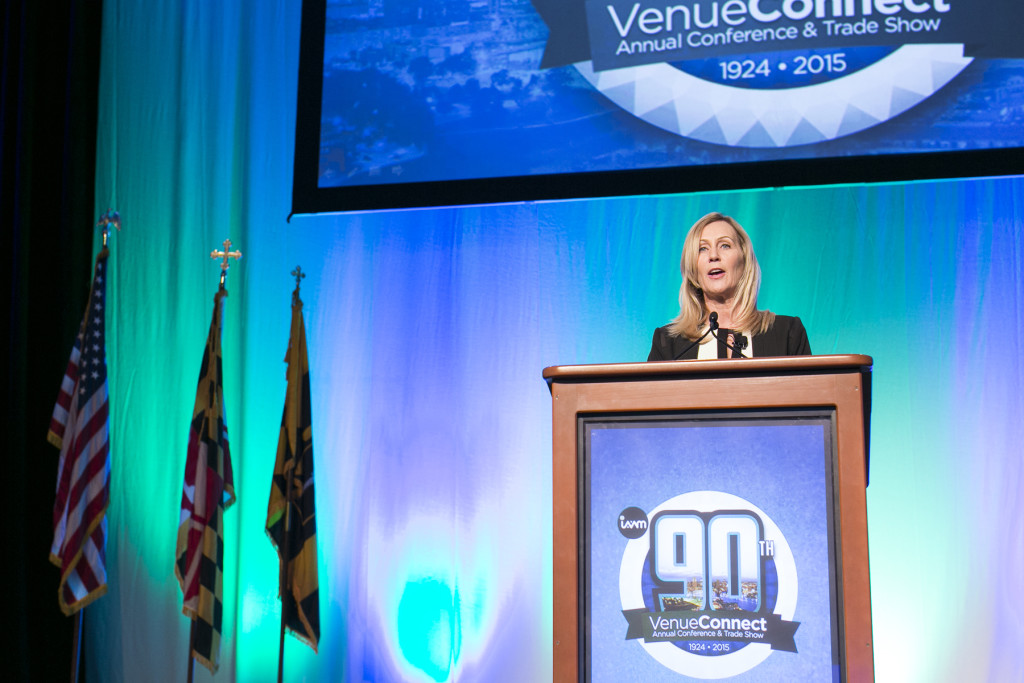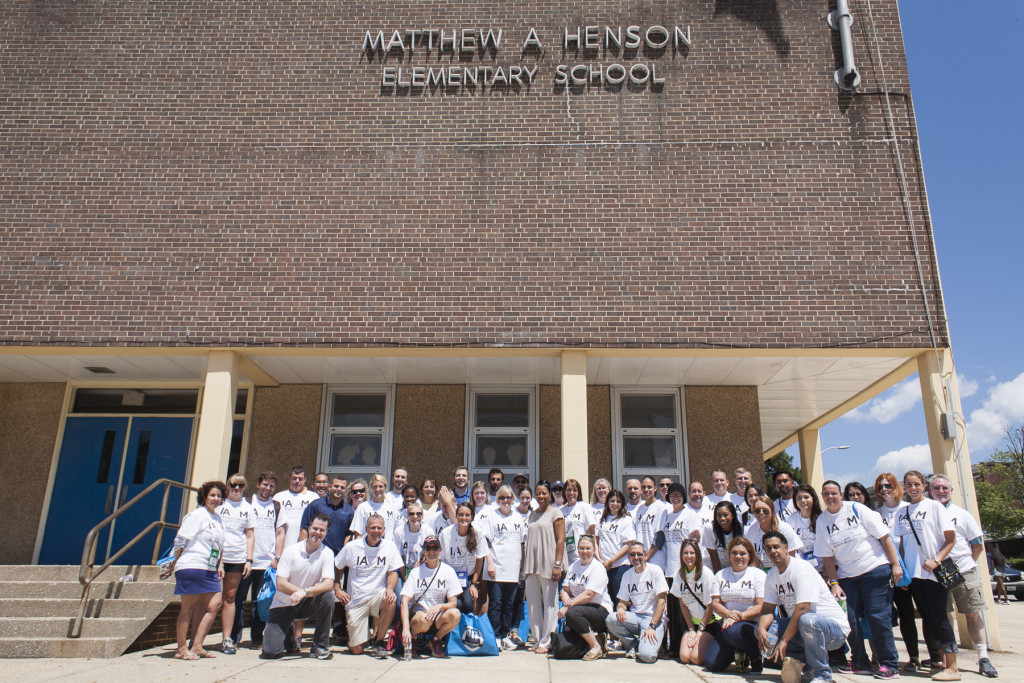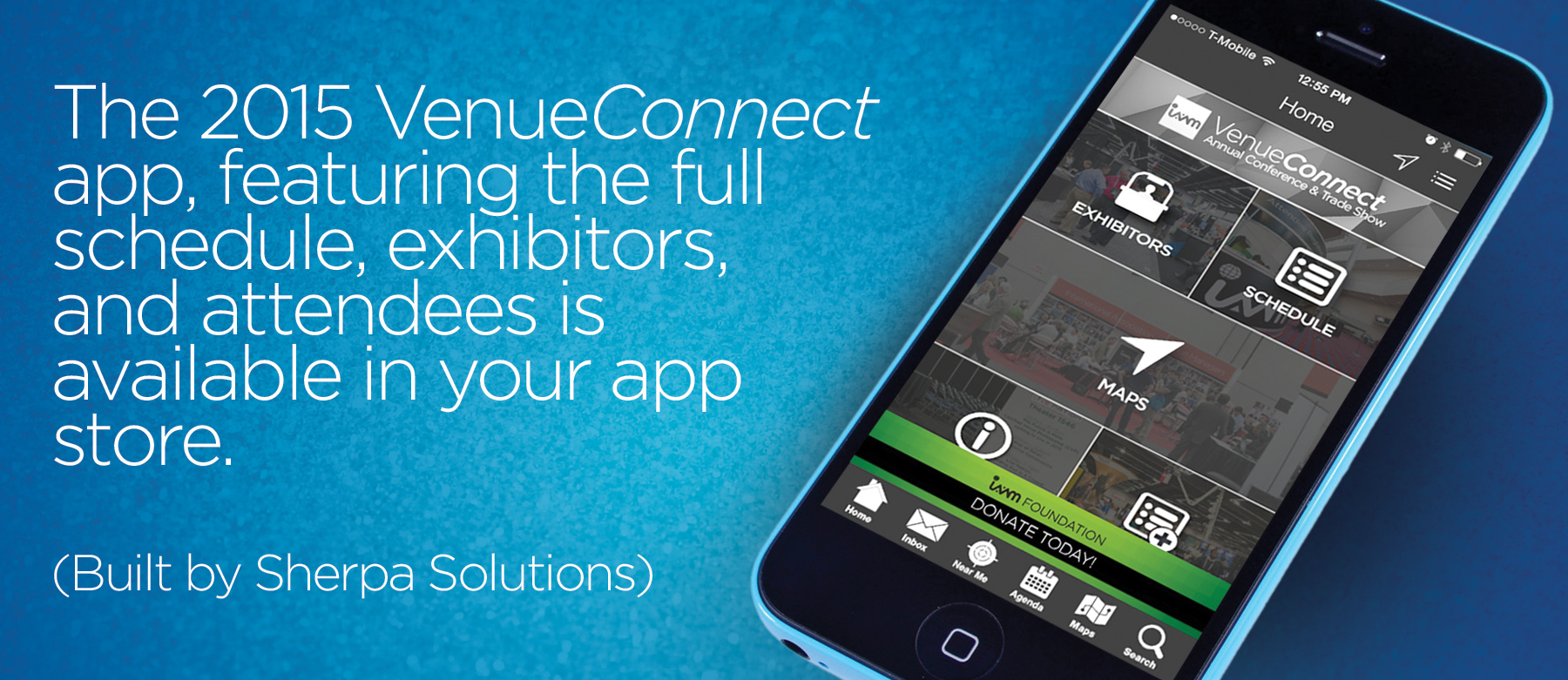Using Tethered Drones for Safety and Security
The latest trend in the drone world involves cables to help them with battery life and to keep them from flying away.
“So-called tethered drones use ultrastrong-but-lightweight cables connected to the ground to provide power, a data link and a physical restraint,” Jack Nicas and Tarun Shukla reported for the Wall Street Journal. “That gives them distinct advantages over their free-flying cousins, including hourslong flight times, fast data transmission and an assurance that they won’t fly into an airliner.”
Nicas and Shukla wrote that these tethered drones can be used as surveillance devices and as ways to consistently collect data. Some professional football teams are looking into using the devices.
Please read the Wall Street Journal article, “Some Drones Are Put on a Leash” to learn more about tethered drones.
VC15: Meet Our 5,000th Member
 IAVM reached a notable membership milestone this year with Candice De Hont, an event manager at the AT&T Center in San Antonio, Texas, becoming the association’s 5,000th member. We briefly spoke with De Hont at VenueConnect to learn more about her.
IAVM reached a notable membership milestone this year with Candice De Hont, an event manager at the AT&T Center in San Antonio, Texas, becoming the association’s 5,000th member. We briefly spoke with De Hont at VenueConnect to learn more about her.
Why did you join IAVM?
“I joined through the encouragement of my boss, Mindy Corr, and it’s a good way to meet all of my peers and interact with them face to face instead of just over email and the phone, which I’m used to. It was a good opportunity, and I took it.”
What’s the most surprising aspect of attending VenueConnect?
“The most surprising thing is how many people here I’m familiar with. I work a lot with them over the phone, over email, through LinkedIn. Now I can put a face with a name.”
What are you looking forward to with your membership?
“Continuing those relationships. I’ve moved from a couple of venues now. It really helps to have those relationships. If I ever want to move up or move on or move to a new city, I’ve got a family here I can reach out to and get some help from.”
Congratulations, Candice, on becoming our 5,000th member!
(Image: Orange Photography)
VC15: It Pays to be Nice, Says Keynote Betsy Myers
Betsy Myers has always been curious about what people do and why they do what they do. This curiosity has driven her to research what it means to be a leader and the most effective ways to lead. And it was during her opening keynote address at VenueConnect that she shared some of her findings with attendees.
“Leadership is about results and what matters to you,” Myers said. “Leadership, today, is about getting the heart of an employee.”
Myers is the founding director of Bentley University. Previously, she was executive director of the Center for Public Leadership at Harvard’s Kennedy School of Government. She also was former U.S. President Bill Clinton’s senior adviser on women’s issues and a senior adviser on U.S. President Barack Obama’s presidential campaign.
During her keynote, she asked attendees to imagine if leaders brought out the productive feelings in the people around them.
“We are human beings first, and our feelings determine our motivation, engagement, and how we connect,” Myers said. “When people feel valued, supported, appreciated, and understood, they do their best work.”
She suggested that attendees be specific with praise.
“Take time to thank people around you,” she said. “Successful leaders have a walking around strategy. The strength of your leadership comes from the willingness and curiosity to ask questions, seek input from those around you, and build relationships.”
In the end, though, there’s one thing a leader can do that offers a greater pay back than anything else.
“Be nice.”
(Image: Orange Photography)
VC15: Legacy Project Volunteers Help Feed Families
Fifty-two VenueConnect 2015 attendees visited Matthew A. Henson Elementary School in Baltimore on Friday, July 31, to participate in the IAVM Foundation’s Legacy Project.
There, they made more than 200 casserole dishes that created 1,600 individual servings, feeding up to 125 families. The event overall was a success, with many volunteers happy they signed up for the project.
“I enjoyed spending time helping making a small difference in someone’s life,” said Jason Blackwell, director of operations for the Portland’5 Centers for the Arts. “We attendees come from all across the country and to band together to help a city is an amazing experience. We brought four-star energy to the community, and I’m proud that Portland’5 is one of the sponsors of this great event.”
Jabari Earl, with the University of Texas San Antonio, echoed Blackwell’s sentiments.
“I wanted to give back to the community and help out,” Earl said. “It was a really great experience. It was good to get everyone together, making food for people who need it.”
Peggy Daidakis, executive director of the Baltimore Convention Center, said that she appreciated the hard work and effort the volunteers displayed.
“Personally, an event like this solidifies and validates that there’s so much more good that’s happening in our community,” Daidakis said. “To be able to give back to the people who need it most is very heart warming and rewarding.”
Thank you to Sodexo, Aramark, Spectra by Comcast Spectacor, Centerplate, and Portland’5 Centers for the Arts for helping fund the IAVM Foundation’s Legacy Project. Below are some select photos from the project.
(All images: Orange Photography)
The VenueConnect Experience
We’re excited to be in Baltimore this year for VenueConnect. In addition to great educational sessions and networking opportunities, we’re happy to offer several new conference experiences for attendees. The following are new this year for VenueConnect:
UpStart: Emerging Leaders Experience| Room 339-342 | 8 AM – 2 PM
Presented by: IAVM Foundation & Western Kentucky University
FREE for students, young professionals, and faculty. US$35 for other VenueConnect attendees. Prior registration required.
Fireside chats: Located on the Trade Show floor. Fireside chats are short, informative discussions about products and ideas relevant to the venue management industry.
Tech showcase: Located on the Trade Show floor. These are 20-minute presentations by suppliers featuring their products.
Spark: Small Tables, Big Topics. These interactive round tables take place on Monday, August 3, 8:30-9:45 a.m. Attendees can move from table to table based on their interests. Here is just a sampling of the many topics to be discussed:
—Cloud Based Parking Technologies
—Dance Flooring
—Motorized Rigging—Pros and Cons
—Selling Your Alternative Space
—Measuring the Effectiveness of Your Leadership
Perhaps you’re unable to attend VenueConnect this year. No problem. Just follow the IAVM on Twitter, Facebook, and Instagram, where we’ll be posting content with the #VC15 hashtag. We’ll also be using Periscope to live-stream some events. Follow us on it, too!
If you’re at the conference, be sure and download our new mobile app powered by Sherpa Solutions. You’ll have access to speaker bios, receive real-time notifications, schedule updates, and be able to create a personal itinerary to remind you of the sessions, programs, and events you don’t want to miss. From your mobile device, you can download it directly from the App Store or Google Play (available July 31). Just search for IAVM.
One of the best tools on the new mobile app is the ActivLocator, a geolocation solution that uses beacons to help attendees see more, do more, and get more face time with the people who matter on the Trade Show floor. An interactive map allows users to locate themselves on the floor, see what’s happening around them, get relevant suggestions and find their next opportunity quickly. Exhibitors, too, can use this tool to reach the right people.
Do you want to receive a Front Row News weekly digest?
Categories
- Allied (856)
- Architecture (147)
- Arenas (744)
- Career (890)
- Convention Centers (889)
- Education (608)
- Events (1,528)
- Food & Beverage (193)
- Foundation (113)
- Guest Experience (1,482)
- Industry News (2,253)
- Leadership (1,872)
- Marketing (150)
- Membership (1,985)
- Music (212)
- Performing Arts Centers (453)
- Professional Development (398)
- Research (127)
- Safety & Security (425)
- Sports (763)
- Stadiums (607)
- Student (159)
- Technology (515)
- Ticketing (92)
- Touring (82)
- Trends (357)
- Uncategorized (772)
- Universities (216)
- Video (25)
- Young Professional (198)
Twitter Feed
- Twitter feed loading
Recent Posts
- Prof. Gil Fried Honored at 37th Annual Sport Recreation and Law Association (SRLA) Conference with Two Major Awards
- GEODIS Park Selects Allied Universal As Its Preferred Event Services Provider
- Venuworks Appoints Marc Solis as Executive Director of the Fresno Convention and Entertainment Center
- Los Angeles Convention Center Diverts 8,000 Pounds of Wood Waste to Local Foundation Supporting Fire Victims
- Fort Worth Unveils Plans for Phase 2 of Convention Center Transformation
Categories
- Allied
- Architecture
- Arenas
- Career
- Convention Centers
- Education
- Events
- Food & Beverage
- Foundation
- Guest Experience
- Industry News
- Leadership
- Marketing
- Membership
- Music
- Performing Arts Centers
- Professional Development
- Research
- Safety & Security
- Sports
- Stadiums
- Student
- Technology
- Ticketing
- Touring
- Trends
- Uncategorized
- Universities
- Video
- Young Professional
Archives
- March 2026
- February 2026
- January 2026
- December 2025
- November 2025
- October 2025
- September 2025
- August 2025
- July 2025
- June 2025
- May 2025
- April 2025
- March 2025
- February 2025
- January 2025
- December 2024
- November 2024
- October 2024
- September 2024
- August 2024
- July 2024
- June 2024
- May 2024
- April 2024
- March 2024
- February 2024
- January 2024
- December 2023
- November 2023
- October 2023
- September 2023
- August 2023
- July 2023
- June 2023
- May 2023
- April 2023
- March 2023
- February 2023
- January 2023
- December 2022
- November 2022
- October 2022
- September 2022
- August 2022
- July 2022
- June 2022
- May 2022
- April 2022
- March 2022
- February 2022
- January 2022
- December 2021
- November 2021
- October 2021
- September 2021
- August 2021
- July 2021
- June 2021
- May 2021
- April 2021
- March 2021
- February 2021
- January 2021
- December 2020
- November 2020
- October 2020
- September 2020
- August 2020
- July 2020
- June 2020
- May 2020
- April 2020
- March 2020
- February 2020
- January 2020
- December 2019
- November 2019
- October 2019
- September 2019
- August 2019
- July 2019
- June 2019
- May 2019
- April 2019
- March 2019
- February 2019
- January 2019
- December 2018
- November 2018
- October 2018
- September 2018
- August 2018
- July 2018
- June 2018
- May 2018
- April 2018
- March 2018
- February 2018
- January 2018
- December 2017
- November 2017
- October 2017
- September 2017
- August 2017
- July 2017
- June 2017
- May 2017
- April 2017
- March 2017
- February 2017
- January 2017
- December 2016
- November 2016
- October 2016
- September 2016
- August 2016
- July 2016
- June 2016
- May 2016
- April 2016
- March 2016
- February 2016
- January 2016
- December 2015
- November 2015
- October 2015
- September 2015
- August 2015
- July 2015
- June 2015
- May 2015
- April 2015
- March 2015
- February 2015
- January 2015
- December 2014
- November 2014
- October 2014
- September 2014
- August 2014
- July 2014
- June 2014
- May 2014
- April 2014
- March 2014
- February 2014
- January 2014
- December 2013
- November 2013
- October 2013
- September 2013
- August 2013
- July 2013
- June 2013
- May 2013
- April 2013
- March 2013
- February 2013
- January 2013
- May 2012
- March 2012
- December 2011
- November 2011
- October 2011
Recent Comments
- Frank Bradshaw, Ph.D., CVE on John Meyer, CVE, a Tireless Advocate of Certification for Venue Professionals, Has Died
- Neil Sulkes on Hilary Hartung, Friend to Many in Venue Marketing, Has Left Us
- Jason Parker, CVE on The Devastation of Hurricane Helene and How We Can Support One Another
- Larry Perkins on Touhey Testifies Against Speculative Ticketing Before Congressional Subcommittee
- Peter Secord on Major Players for Planned Elkhart Amphitheater Were in the Mix at VenueConnect













